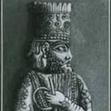Thomas Yaeger's Blog, page 10
February 17, 2019
Pharaoh Akhenaten, the Aten, and the History of Ideas (I)
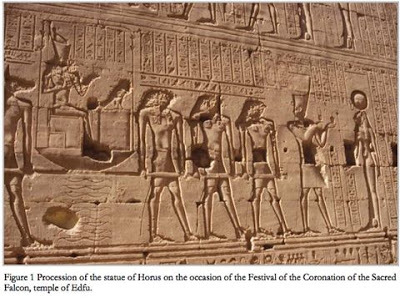
[An extract from recent correspondence with a specialist in ancient astronomy. Akhenaten's reign is not often considered to have been one concerned with a technical understanding of astronomy (though through his veneration of the Divine Aten, his interest in the sky is clear). There are interesting reasons for this neglect]
January 24, 2019
[...]
I’ll respond to your mail in order. First the Egyptian paper.
I had the opportunity to look at pharaoh Akhenaten in some depth at university. His reign...
Published on February 17, 2019 06:44
February 14, 2019
The Plenum and Physics (Writing to George Shiber)

Dear George,
It occurs to me that I might have bowled you a bit of a googly with my opening gambit. So I’m going to explain a bit more of where I think I’m going with that gambit, why the route is worth pursuing, and how we are likely to end up talking physics.
As I suggested, there isn’t much we can say about the initial state of physical reality at a notional time of its emergence, if the various parameters of what can be said of it don’t have any existence. That’s the problem physics has w...
Published on February 14, 2019 04:06
February 9, 2019
The Roots of Philosophy: Four Books by Thomas Yaeger
These four books are free to download from Smashwords between Monday, February 11, 2019, and Sunday, February 17, 2019 (Pacific Standard Time).
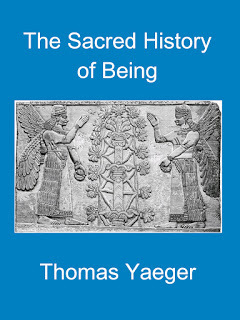
The Sacred History of Being (2015)
The discipline of philosophy was not invented by the Greeks, but was in existence elsewhere, and as far back as the middle of the second millennium BCE. It has its origin in ancient divine cult. The detail of its presence can be traced in the civilizations around the ancient Near East, and particularly in Assyria and B...
Published on February 09, 2019 03:56
February 4, 2019
Orientalism and the Post-Enlightenment Agenda (Writing to Katherine Blouin)

[In 2018 I had some brief conversation with Dr. Katherine Blouin via Twitter. Which prompted the following email].
I thought I should tell you about my work, since I am part of the largely disorganised cohort working for a radical change in our understanding of the role of ancient Greece in the development of western civilization.
My initial background is in classics and philosophy. At UCL I also studied Mesopotamia (languages and culture). This study was across three departments -...
Published on February 04, 2019 04:09
January 10, 2019
Philosophical Thought in Greece and Babylonia (III)
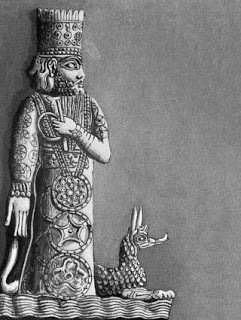
We can never know exactly when the idea of Being, or, as we may characterise it, the most abstract possible conception of the nature of reality, first entered human consciousness. It may have been an idea which was conjectured as long ago as the Palaeolithic period, or as late as the early Neolithic.
However, for those who accept the western convention that the abstract conception of Being as the foundation of reality itself was first broached by the Greeks in the middle of the 1stmillen...
Published on January 10, 2019 10:22
December 30, 2018
What is Philosophy?
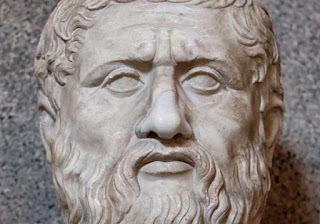
The word is made of two Greek components. The meaning of the first is obvious. Sophos means ‘wise’ and was applied to those who had wisdom (’sophist’). It is comparable to the Latin ‘sapiens’, and both may owe their origins to the Egyptian ‘sp’, which has a range of meanings, including ‘to teach’.
We got both the word ‘philosophy’, and the practice of the discipline, via Pythagoras, who flourished in the sixth century. Plato spent much of his life criticising the philosophers who came a...
Published on December 30, 2018 14:08
December 26, 2018
Philosophical Thought in Greece and Babylonia (II)

The conventional wisdom, at least since the European enlightenment in the eighteenth century C.E., is that the phenomenon of monotheism is an idea which emerged from a preceding general inclination to polytheism among the human race. It is also conventional wisdom that we know of no instance of a monotheistic religion before the instances which are regularly cited to support this narrative. This emergence is short on evidence, and the evidence we have is less than clear in terms of context an...
Published on December 26, 2018 14:25
December 21, 2018
Philosophical Thought in Greece and Babylonia (I)
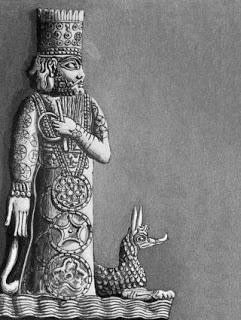
"…. yet dualism was able to reign for so long, thousands of years after those truths of the whole were irrefutably established".
*** I’m not sure how much of my work you have read. It isn’t obligatory for anyone to read any of it at all. However there were many more subjects dealt with in my first book (The Sacred History of Being) than the chapter listing suggested. It was designed to be worth reading, but it isn’t constructed as a through narrative. It canbe read like that, but the stru...
Published on December 21, 2018 13:43
December 11, 2018
In Search of Space
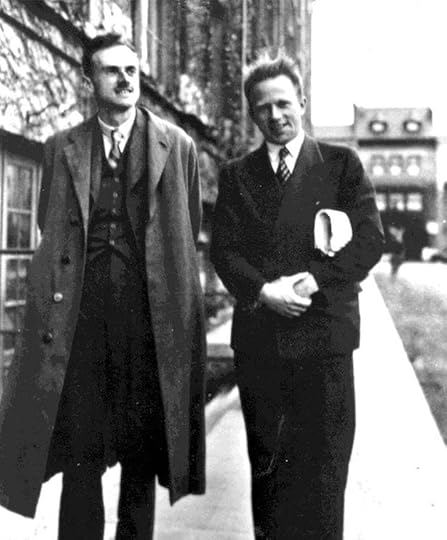 George Shiber
George Shiber "If nature leads us to mathematical forms of great simplicity and beauty—we cannot help thinking that they are 'true', that they reveal a genuine feature of nature." ― Werner Heisenberg was born #OTD in 1901 https://www.nobelprize.org/prizes/phy... …
Nice to have Heisenberg on my side on the universalis of geometry crusade! I hope you are heading into a warm midwinter..., Geometry and mathematics points us in the direction of what is impo...
Published on December 11, 2018 10:04
November 9, 2018
Transcendental Thought in Ancient Assyria

Transcendental thought in Assyria? The conventional view is that there is no transcendental or rational thought worthy of the name before the rise of Greek philosophy. That is the settled view of western scholars. A new anthology of transcendentalist thought *1, compiled by David LaRocca, published in February 2017, begins only with the writings of the Greeks, and without a trace of embarrassment about having nothing to say about earlier times.
This view, which is dependent on the...
Published on November 09, 2018 08:23

